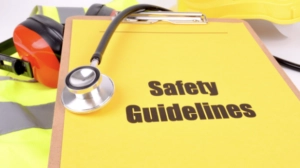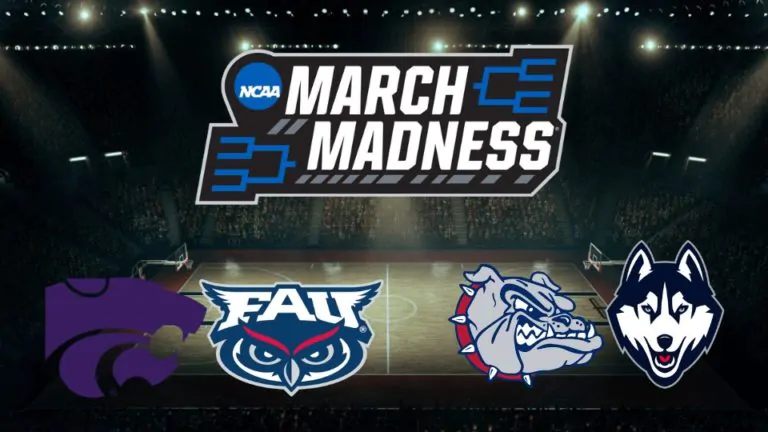College athlete health and safety has been on the minds of many coaches, college sports fans, and of course, athletes themselves for quite some time. Several conferences and universities have canceled their fall seasons citing coronavirus concerns, but the NCAA has been largely silent on its call moving forward. Rather than making an Association-wide decision, the NCAA has essentially passed the baton to its conferences and member schools and opted to allow them to make the big decisions, but the NCAA has released a set of return-to-sport guidelines, implying that the fall season is still on the table.
It is important for athletes to understand that everything the NCAA has released so far are guidelines, not standardized procedures, so the NCAA is recommending best practices, not implementing policies that universities are required to follow. Just like the NCAA has left the decision of resuming a fall season up to individual universities, the NCAA has also elected to place the responsibility of COVID precautions on member schools. Thus, coronavirus testing and safety procedures will vary from program-to-program, and could change over time with little-to-no warning. As an athlete, it is smart to be flexible in the coming months. Here are some big takeaways from the NCAA's newest guidelines that athletes need to be aware of for right now.
- The NCAA recommends physical distancing and the wearing of masks “whenever feasible,” but acknowledges that “close, physical contact” is inevitable in sports (especially tackle football). Other recommendations include moving training outdoors whenever possible, wearing a mask when conversing with coaches on the sidelines, implementing the use of face shields where feasible, hand sanitization, and “cough/sneeze etiquette.” Outside of practice, the NCAA advises following CDC guidelines whenever possible, and it is wise for athletes to do so to mitigate their risk as much as possible.
- The NCAA recommends athletes and athletics staff perform “daily self-health checks,” but does not elaborate on what those checks might look like. Universities have included temperature and symptom checking before, and these procedures will likely continue as the fall season nears (but they are subject to change). Be sure to check with your coaches and trainers to make sure you are following these procedures adequately, especially if you have signed off on a risk waiver that could be legally binding.
- The NCAA's guidelines state that “all individuals with high-risk exposure must be quarantined for 14 days,” which might be feasible in the off-season, but it's a questionable practice for students taking in-person classes in the fall. Athletes participating in a fall sport might want to reach out to professors well in advance if their team is implementing a quarantine policy to account for absences in the classroom.
- The NCAA acknowledges that COVID risk is high for certain individuals, including those with a BMI of over 30, a category under which many football players fall. The Big Ten and the Pac-12 have promised that athletes who opt to sit out the 2020 fall season due to COVID concerns will not lose scholarships, but NCAA policy does not back this promise, and under NCAA guidelines, athletic scholarships can be revoked for virtually any reason. If you do not want to compete due to coronavirus concerns and you want to discuss scholarship implications with your coach, be sure to get an agreement in writing if at all possible. The more you can document financial agreements, the better, especially because NCAA scholarship policies have not changed in this regard, and the NCAA is not promising to honor scholarships.
- The NCAA has not stated whether or not college athletes who opt to sit out the season will be granted an extra year of eligibility, but athletes will likely be able to file for a medical redshirt if they so choose. So far, there's no word from the NCAA about the eligibility of athletes whose fall seasons have already been canceled, but given the NCAA's willingness to grant spring athletes extra eligibility, it is reasonable to believe that fall athletes whose seasons were affected by COVID will be granted an extra year. By and large, the NCAA controls eligibility, so be sure to follow them for these updates, and also check with your coach about roster availability for the following season if you are considering sitting the fall out.
Hopefully, the NCAA's guidelines will become irrelevant if/when the NCAA or more of its member schools decide to cancel the fall season. For now, athletes can check the NCAA's website for more best practice updates, but the best way to find out about how COVID procedures will affect your season is to check in with your coach. For updates on the status of the fall season, be sure to follow your conference, rather than the NCAA, as several conferences have already canceled their fall seasons, and the NCAA is giving them decision-making ability here. Above all, stay as safe as possible and carefully consider whether competing this fall is worth the risk.
For more NCAA updates, follow Katie Lever on Twitter: @leverfever
* Originally published on July 22, 2020, by Katie Lever, Ph. D







